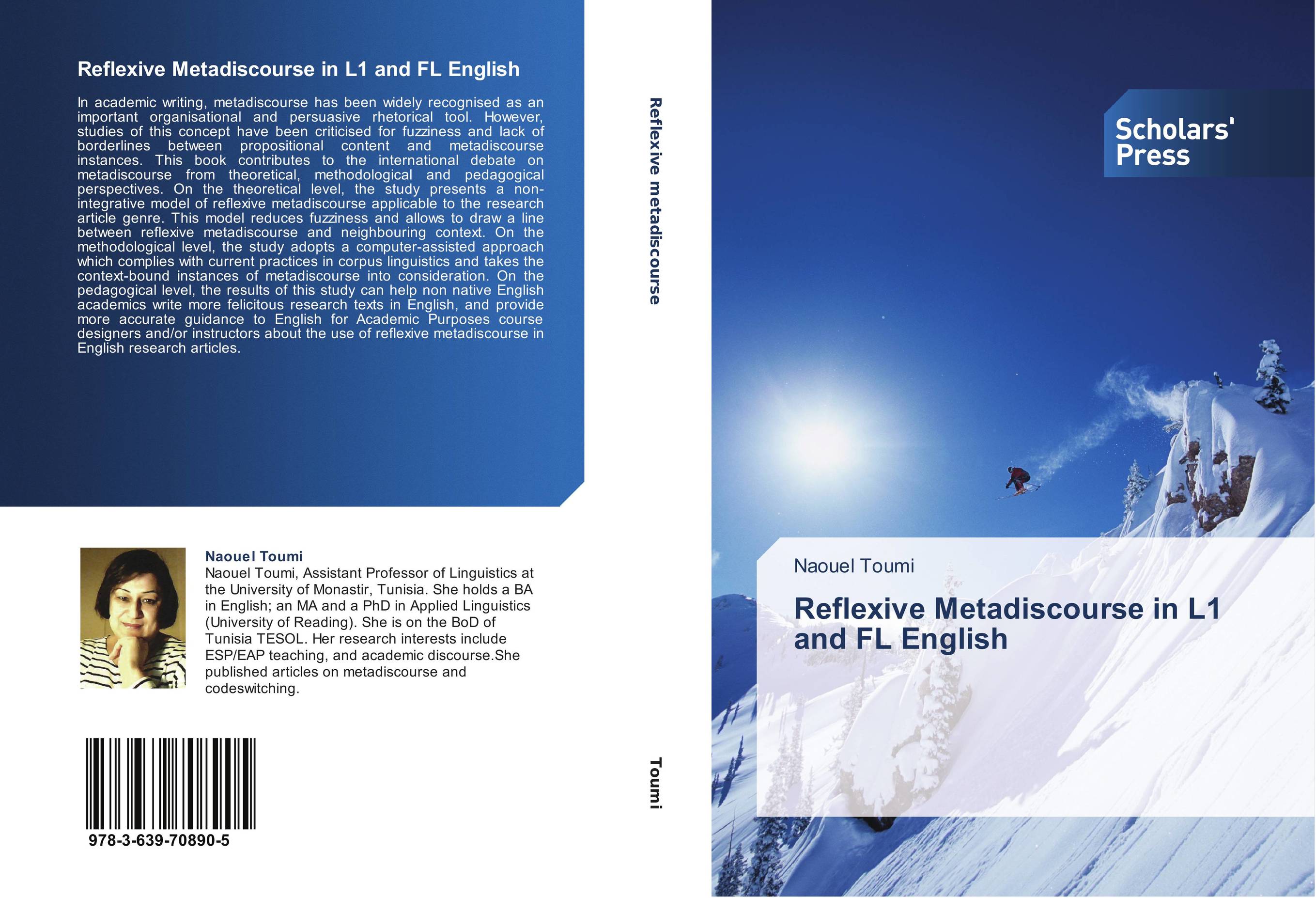| Поиск по каталогу |
|
(строгое соответствие)
|
- Профессиональная
- Научно-популярная
- Художественная
- Публицистика
- Детская
- Искусство
- Хобби, семья, дом
- Спорт
- Путеводители
- Блокноты, тетради, открытки
Reflexive Metadiscourse in L1 and FL English.

В наличии
| Местонахождение: Алматы | Состояние экземпляра: новый |

Бумажная
версия
версия
Автор: Naouel Toumi
ISBN: 9783639708905
Год издания: 2014
Формат книги: 60×90/16 (145×215 мм)
Количество страниц: 456
Издательство: Scholars' Press
Цена: 73574 тг
Положить в корзину
Позиции в рубрикаторе
Отрасли знаний:Код товара: 135971
| Способы доставки в город Алматы * комплектация (срок до отгрузки) не более 2 рабочих дней |
| Самовывоз из города Алматы (пункты самовывоза партнёра CDEK) |
| Курьерская доставка CDEK из города Москва |
| Доставка Почтой России из города Москва |
Аннотация: In academic writing, metadiscourse has been widely recognised as an important organisational and persuasive rhetorical tool. However, studies of this concept have been criticised for fuzziness and lack of borderlines between propositional content and metadiscourse instances. This book contributes to the international debate on metadiscourse from theoretical, methodological and pedagogical perspectives. On the theoretical level, the study presents a non-integrative model of reflexive metadiscourse applicable to the research article genre. This model reduces fuzziness and allows to draw a line between reflexive metadiscourse and neighbouring context. On the methodological level, the study adopts a computer-assisted approach which complies with current practices in corpus linguistics and takes the context-bound instances of metadiscourse into consideration. On the pedagogical level, the results of this study can help non native English academics write more felicitous research texts in English, and provide more accurate guidance to English for Academic Purposes course designers and/or instructors about the use of reflexive metadiscourse in English research articles.
Ключевые слова: Reflexive Metadiscourse, Academic Discourse, corpus linguistics, Metadiscourse Model, Tunisian Writing



